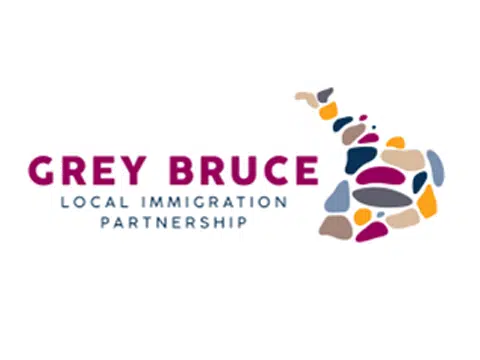A report to Grey County council looks at survey results from 120 immigrants in Grey Bruce and outlines what their challenges and highlights have been in living in the region.
The big challenges have been finding healthcare, followed by accessing programs and recreation, followed by childcare services.
41 per cent of survey respondents said making new friends was a challenge.
Grey Bruce Local Immigration Partnership Director Deepika Gupta made a presentation about the survey to council’s committee of the whole Thursday.
The report, presented by Gupta says, “Immigrants in Grey Bruce expressed both satisfaction and frustration with services available and the overall community, with those newer to the community more likely to experience challenges and discrimination than long-time residents.”
Survey respondents say they would like more of a focus on affordable housing, community connections among immigrants, more involvement in community development and more equitable employment.
To create more social connections in the community, they would like to see more cultural events, anti-racism actions and building cultural competence in the community.
The report says those who are newer to the community were more likely to experience challenges and discrimination than long-time residents.
Most immigrants live in Owen Sound, (36 per cent), followed by Saugeen Shores at 16 per cent, Grey Highlands and West Grey were home to 7 per cent of survey respondents.
84 per cent of survey respondents have completed post-secondary education, with 38 per cent holding bachelor’s degrees, 25 per cent with master’s degrees, 13 per cent with college diplomas and 8 per cent with PhDs.
77 per cent reported being part of the paid workforce.
The report says 37 per cent of respondents said they came to Grey Bruce for a job.
On A scale of 0-10, Grey Bruce was ranked by respondents at 5.87 in terms of how welcoming the community is to immigrants.
57 per cent of respondents say they had an ‘excellent’ experience, 37 per cent described it as ‘Good’ 32 per cent characterized their experience as ‘neutral’ and 11 per cent said it was ‘not very good.’
Gupta told council, isolation was a cause of concern, noting, only 17 per cent did not feel isolated. About 30 per cent did feel a little bit, 24 per cent answered ‘somewhat,’ 19 per cent felt ‘quite a bit’ isolated, and 10 per cent, ‘a great deal.’
Gupta says that’s about 80 per cent of them feeling some level of isolation.
Her report says when asked if they had experiences of discrimination or unfair treatment in the past year, 43 per cent said ‘yes’ and 57 per cent said ‘no.’
The report says, an avenue to consider for further research may be looking at the barriers to accessing services, and what causes respondents to rate their experience in some categores like housing as ‘poor.’



